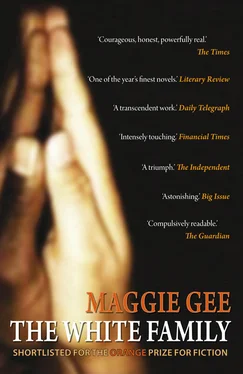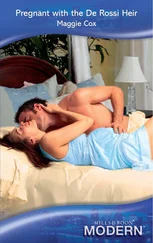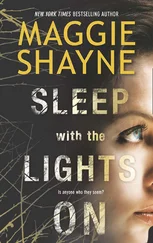You would never catch Alfred doing that. Thomas had bumped into him one day near the dark wood hut with its chicken-wire windows, in which some dishevelled-looking, startlingly yellow foreign birds had just appeared. ‘Aren’t these wonderful?’ Thomas had asked him, more for something to say than from real enthusiasm. ‘Matter of opinion,’ Alfred said. ‘Lots of us think it’s a mistake.’ ‘But you always had an aviary here.’ ‘Ah yes, but before, we had British birds. Normal birds. Birds that would be happy.’ ‘I can’t remember what you had before.’ ‘Budgerigars. Pheasants. British birds.’ ‘Actually, I’m not sure that budgerigars are British.’ And Alfred replied, quite patiently, ‘Of course they’re British. They’ve always been here. My mum and dad kept budgerigars. It’s natural, having budgerigars. Whereas foreign birds — It’s not going to suit them. First touch of frost, this lot’ll be goners.’
Now Thomas went to see if Alfred had been right, but the birds were still there, perhaps more than before, shivering at the back of the wooden hut, their tail-feathers long saffron flashes of satin that flickered against the drab colours of the background. The old man was trying to talk to them. ‘Pretty birds, pretty birds,’ he said. ‘Pretty boy, pretty boy,’ but they ignored him. Inside his brown coat was tucked a mauve silk scarf, surprising, beautiful, feminine.
The flower-beds, so bright in summer, were drabber now, flowers-in-waiting, wallflowers, polyanthus, winter pansies, each species set in its separate bed, with a few fierce blazes of tulips and daffodils, straight as soldiers, guarding the path. Thomas walked up to the top of the hill. Reaching the crown, he saw the children’s playground, raw reds and yellows, against the far fence, and next to it brown hills of leaf-mould dwarfing the figure of a stooped Asian woman loading something into a child’s push-chair (loading compost … why was that?), then beyond the Park, the cemetery, stretching away like a petrified forest, acres of quiet white and cream, then behind it the gleaming ranks of roofs, tiling the earth to the smudged horizon, greying to nothing, becoming invisible, dimming away into a pall of fumes.
He drew a deep breath, and the sun came out, very low and golden, tinged with red, skimming across the rows of houses, the factory roofs, the city windows, gilding, illuminating, planting shadows, burnishing cars and panes of glass, giving depth and life to the distant city.
The wind knocked him, spun him round, and the Park was suddenly a thing of glory, radiant in the last of the sunshine, a green field lifted towards the sky, the black branches of the cherry-trees waving thick soft flurries of pale pink petals, the weeping willows whipping threaded beads of gold against the coming evening, the boy on rollerblades swooping like an angel, arms uplifted, down the hill, the poodle rocketing, mad with joy, after a lolloping yellow cocker-spaniel … All shall be well, a voice told Thomas. His flesh prickled with icy pleasure.
Albion Park. It was a hundred years old, built in the spate of philanthropy that heralded the end of the nineteenth century, when the local hospital was built, and the library, both of them by the same local builder, who had a deft hand with stone and red brick and a love of detail; pediments, cornices. The drinking-fountain was a marvel, a spired, four-sided, stone creation modelled like a miniature Gothic cathedral. It was the focal point to which all paths led. Not far away the Park Keeper’s lodge was a solidly impressive Victorian pile, two-storey, detached, with fine large windows.
I wonder why Alfred never lived there? I’m sure he’d have jumped at it, given the chance. Sold off, probably. Some shoddy deal. In the same way they tried to sell off the Rise’s branch libraries. But people wouldn’t have it. The public said ‘No’.
They’d sell the Park too, given the chance. Build it all over with shops and offices. Then none of us would be able to breathe.
Alfred had stood here most of his life. Or marched like the soldier he had once been, left-right, left-right, patrolling his fiefdom. Every so often he would pause for a second to gaze across the flower-beds at some offender.
Here he had stood, and here he fell. ‘They get abusive when he catches them at it.’ That was May, grey-lipped, as she sat and cried, though Thomas said the black family weren’t to blame. ‘You have no idea what he puts up with,’ she insisted. At any rate, the row had done for Alfred. Thomas briefly saw him stretched flat on the ground. His cap had come off. It was horrible. Thin hanks of white hair flapping back from his bald patch … helpless, naked, pink with hurt life …
Thomas had come to the Park since he was a child. He put out his hand and touched the drinking-fountain, the rough pores of the weathered white stone. It had stood there through rain and frost and pollution and been ready every summer to give water to the kids, some of them too small to reach the basins unaided, clutching their lollies, balls, sweets, clinging to the arms of their brothers or sisters.
Thomas was glad to see a gardener stooping dutifully over the bed by the fountain, trowel glinting in the sun as he dug. She dug, he corrected himself; a middle-aged woman in a navy mack he had mistaken for overalls, digging the crescent-shaped bed which was already a riot of tulips and daffodils.
‘Cold, isn’t it?’ he greeted her, passing close by, a semi-automatic courtesy, one human being acknowledging another, together in the struggle against dark and disorder.
She whirled round instantly, craned anxiously upwards. He saw she held a bulb in her trowel. It had already sprouted a tight pink bud and a trailing beard of root-hairs, black with earth. ‘Sorry,’ he said, ‘did I startle you?’ Three others lay on the path beside her. ‘Are you just putting those in? Isn’t it rather late?’
‘Yes,’ she said, in a strange, throttled voice. Her cheeks were netted with purple veins, but her eyes were vacant, large, frightened.
‘I don’t mean to criticize,’ he said.
There was a silence. She stayed crouched, frozen. Thomas couldn’t fathom how he had upset her.
‘I’m just going to visit Alfred,’ he said. ‘The Park Keeper. Did you know he’s ill?’
‘Yes,’ she said, and to his horror the tears began trickling down her cheeks. ‘Don’t tell him,’ she sobbed, ‘please don’t tell him …’
And then he realized. She wasn’t a gardener. She was just a woman stealing flowers. She was digging them up, not planting them. An oil-cloth bag was waiting to be loaded, an old woman’s bag, a poor person’s bag. And then he remembered the Asian woman, loading compost into her push-chair. They were all at it, with Alfred away.
‘I won’t tell him,’ he muttered. ‘But do you think — should you be doing that?’ He left her kneeling there, as if praying.
Alfred, of course, would have sorted her out. He probably knew her, and her habits. He would have done it quietly, with no fuss. He might have taken her round to his shed at the back of the toilets for a cup of tea. Or perhaps he wouldn’t; she seemed slightly barmy. But he would have known. This is his patch. Like he knew the drinkers and the meths addicts. But he isn’t here, and there’s no one to help her, or to protect her from herself.
The sun had slipped behind the crest of the hill, and the Park dipped slowly down towards night. Thomas sat on the bench, with his back to the pond where Asian wedding photos were taken in summer. He thought about Alfred as the light lessened, the wonderful afterglow of lemon-gold light pouring up from the horizon, drenching half the sky, imperceptibly thinning to early evening blue. Which is how it is with us, he thought. In the afterglow of the last century, when the money from the empire was used for public works … But the ideals are fading. And the cash is nearly gone.
Читать дальше












